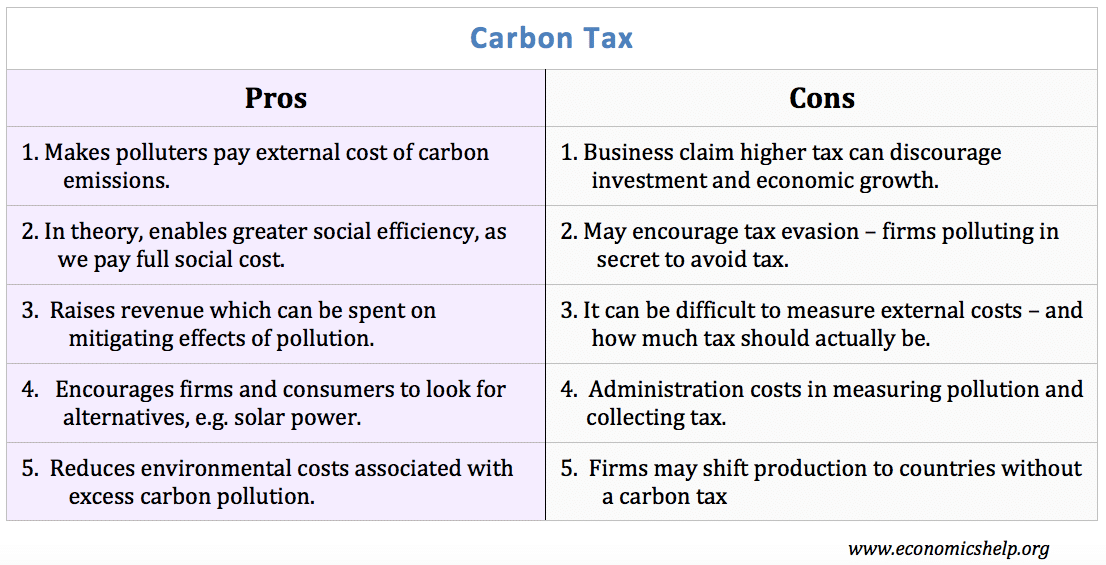CARBON TAX | WORLD ENVIRONMENT DAY
Carbon tax is a form of pollution tax. It levies a fee on the production, distribution or use of fossil fuels based on how much carbon their combustion emits. It is a form of carbon pricing. The objective of a carbon tax is to reduce the harmful and unfavorable levels of carbon dioxide emissions, thereby decelerating climate change and its negative effects on the environment and human health. Carbon tax also makes alternative energy more cost-competitive with cheaper, polluting fuels like coal, natural gas and oil.
Why do we need it?
 The combustion of fossil fuels releases carbon dioxide (CO2), a major greenhouse gas (GHG), into the atmosphere, and there is strong evidence that the buildup of GHGs is the primary cause of the global warming that has occurred in recent decades. CO2 concentration in the atmosphere has risen about 43% since the beginning of the industrial revolution in the mid-eighteenth century—half of that since 1980.
The combustion of fossil fuels releases carbon dioxide (CO2), a major greenhouse gas (GHG), into the atmosphere, and there is strong evidence that the buildup of GHGs is the primary cause of the global warming that has occurred in recent decades. CO2 concentration in the atmosphere has risen about 43% since the beginning of the industrial revolution in the mid-eighteenth century—half of that since 1980.In recent years, as a result of thermal expansion and glacier melt, the global average sea level has been rising at about 3 millimeters (1/8 inch) per year during the past 20 years, threatening inundation of areas with low elevation. For example, Bangladesh, one of the world’s most impoverished nations, is projected to lose 17.5% of its land if sea level rises about 1 meter (39 inches), displacing millions of people. Several islands in the South Pacific and Indian oceans may disappear entirely.
Climate change is not just a national concern. All countries share the same atmosphere. Worldwide, CO2 emissions are projected to increase substantially, primarily as a result of increased development in China and India. Therefore, future global decisions about whether and how to limit GHG emissions will affect us all.
Economic theory
Carbon tax offers social and economic benefits. David Gordon Wilson first proposed a carbon tax in 1973. It is a tax that increases revenue without significantly altering the economy while simultaneously promoting objectives of climate change policy. It has been argued that increasing environmental regulation such as carbon taxes often centers on concerns that firms might relocate and/or people might lose their jobs. However, the carbon taxes are more efficient than direct regulation and may even lead to higher employment. But many large users of carbon resources in electricity generation, such as the United States, Russia and China, are resisting carbon taxation.
In addition to creating incentives for energy conservation, a carbon tax would put renewable energy sources such as wind, solar and geothermal on a more competitive footing, stimulating their growth.
In addition to creating incentives for energy conservation, a carbon tax would put renewable energy sources such as wind, solar and geothermal on a more competitive footing, stimulating their growth.
We know taxes slow down economic growth, so if we add a carbon tax we have to also minus other taxes. We can't take more money out of people's pockets.
Social Cost
The social cost of carbon (SCC) is the marginal cost of the impacts caused by emitting one extra tonne of carbon (as carbon dioxide) at any point in time, inclusive of ‘non-market’ impacts on the environment and human health. The concept of a social cost of carbon was first mooted by the Reagan administration in 1981.
Pros & Cons of carbon tax





Your Blog is not only good but it's better . Explanation is quite well and is also very beneficial for UPSC ASLIRANTS AS well. Keep writing these blogs do not let it stop for any reason. Your small efforts can
ReplyDeleteBring a big change in someone's life.